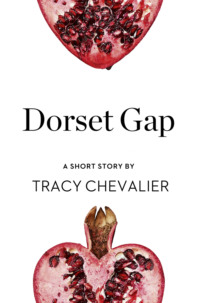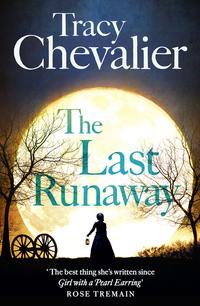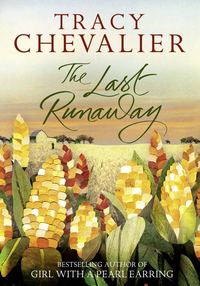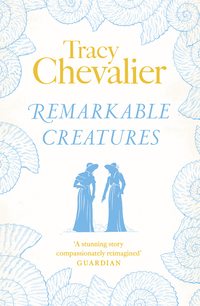
Полная версия
The Virgin Blue
‘Should I wear a dress?’ I kept pestering Rick.
‘Wear what you want,’ he replied usefully. ‘They won’t mind.’
But I will, I thought, if I wear the wrong thing.
There was the added problem of my arms – it was a hot day but I couldn’t bear the furtive glances at my erupted skin. Finally I chose a stone-coloured sleeveless dress that reached my mid-calf and a white linen jacket. I thought I would fit in with more or less any occasion in such an outfit, but when the couple opened the door of their big suburban house and I took in Chantal’s jeans and white t-shirt, Olivier’s khaki shorts, I felt simultaneously overdressed and frumpy. They smiled politely at me, and smiled again at the flowers and wine we brought, but I noticed that Chantal abandoned the flowers, still wrapped, on a sideboard in the dining room, and our carefully chosen bottle of wine never made an appearance.
They had two children, a girl and a boy, who were so polite and quiet that I never even found out their names. At the end of the meal they stood up and disappeared inside as if summoned by a bell only children could hear. They were probably watching television, and I secretly wished I could join them: I found conversation among us adults tiring and at times demoralizing. Rick and Olivier spent most of the time discussing the firm’s business, and spoke in English. Chantal and I chatted awkwardly in a mixture of French and English. I tried to speak only French with her, but she kept switching to English when she felt I wasn’t keeping up. It would have been impolite for me to continue in French, so I switched to English until there was a pause; then I’d start another subject in French. It turned into a polite struggle between us; I think she took quiet pleasure in showing off how good her English was compared to my French. And she wasn’t one for small talk; within ten minutes she had covered most of the political trouble in the world and looked scornful when I didn’t have a decisive answer to every problem.
Both Olivier and Chantal hung onto every word Rick uttered, even though I made more of an effort than he did to speak to them in their own language. For all my struggle to communicate they barely listened to me. I hated comparing my performance with Rick’s: I’d never done such a thing in the States.
We left in the late afternoon, with polite kisses and promises to have them over in Lisle. That’ll be a lot of fun, I thought as we drove away. When we were out of sight I pulled off my sweaty jacket. If we had been in the States with friends it wouldn’t have mattered what my arms looked like. But then, if we were still in the States I wouldn’t have psoriasis.
‘Hey, they were nice, weren’t they?’ Rick started off our ritual debriefing.
‘They didn’t touch the wine or flowers.’
‘Yeah, but with a wine cellar like theirs, no wonder! Great place.’
‘I guess I wasn’t thinking about their material possessions.’
Rick glanced at me sideways. ‘You didn’t seem too happy there, babe. What’s wrong?’
‘I don’t know. I just feel – I just feel I don’t fit, that’s all. I can’t seem to talk to people here the way I can in the States. Until now the only person I’ve had any sustained conversation with besides Madame Sentier is Jean-Paul, and even that isn’t real conversation. More like a battle, more like—’
‘Who’s Jean-Paul?’
I tried to sound casual. ‘A librarian in Lisle. He’s helping me look into my family history. He’s away right now,’ I added irrelevantly.
‘And what have you two found out?’
‘Not much. A little from my cousin in Switzerland. You know, I was starting to think that knowing more about my French background would make me feel more comfortable here, but now I think I’m wrong. People still see me as American.’
‘You are American, Ella.’
‘Yeah, I know. But I have to change a little while I’m here.’
‘Why?’
‘Why? Because – because otherwise I stick out too much. People want me to be what they expect; they want me to be like them. And anyway I can’t help but be affected by the landscape around me, the people and the way they think and the language. It’s going to make me different, a little different at least.’
Rick looked puzzled. ‘But you already are yourself,’ he said, switching lanes so suddenly that cars behind us honked indignantly. ‘You don’t need to change for other people.’
‘It’s not like that. It’s more like adapting. It’s like – cafés here don’t serve decaffeinated coffee, so I’m getting used to having less real coffee or no coffee at all.’
‘I get my secretary to make decaf at the office.’
‘Rick—’ I stopped and counted to ten. He seemed to be wilfully misunderstanding my metaphors, putting that positive spin on things.
‘I think you’d be a lot happier if you didn’t worry so much about fitting in. People will like you the way you are.’
‘Maybe.’ I stared out the window. Rick had the knack of not trying to fit in but being accepted anyway. It was like his ponytail: he wore it so naturally that no one stared or thought him odd. I, on the other hand, despite my attempts to fit in, stood out like a skyscraper.
Rick had to stop by the office for an hour; I had planned to sit and read or play with one of the computers, but I was in such a bad mood that I went for a walk instead. His office was right in the centre of Toulouse, in an area of narrow streets and boutiques now full of Sunday strollers window-shopping. I began to wander, looking in windows at tasteful clothes, gold jewellery, artful lingerie. The cult of French lingerie always surprised me; even small towns like Lisle-sur-Tarn had a store specializing in it. It was hard to imagine wearing the things on display, with their intricate straps and lace and designs that mapped out the body’s erogenous zones. There was something un-American about it, this formalized sexiness.
In fact French women in the city were so different from me that I often felt invisible around them, a dishevelled ghost standing aside to let them pass. Women out strolling in Toulouse wore tailored blazers with jeans and understated chunks of gold at their ears and throats. Their shoes always had heels. Their haircuts were neat, expensive, their eyebrows plucked smooth, their skin clear. It was easy to imagine them in complicated bras or camisoles, silk underwear cut high on the thigh, stockings, suspenders. They took the presentation of their images seriously. As I walked around I could feel them glancing at me discreetly, scrutinizing the shoulder-length hair I’d left a little too long in cutting, the absence of make-up, the persistently wrinkled linen, the flat clunky sandals I’d thought so fashionable in San Francisco. I was sure I saw pity flash over their faces.
Do they know I’m American? I thought. Is it that obvious?
It was; I myself could spot the middle-aged American couple ahead of me a mile off just from what they were wearing and the way they stood. They were looking at a display of chocolate and as I passed were discussing whether or not to return the next day and buy some to take home with them.
‘Won’t it melt in the plane?’ the woman asked. She had wide, low-slung hips and wore a loose pastel blouse and pants and running shoes. She stood with her legs wide apart, knees locked.
‘Naw, honey, it’s cold 35,000 feet up. It’s not gonna melt, but it might get squished. Maybe there’s something else in this town we can take home.’ He carried a substantial gut, emphasized by the belt bisecting and hugging it. He wasn’t wearing a baseball cap but he might as well have been. Probably left it at the hotel.
They looked up and smiled brightly, a wistful hope shining in their faces. Their openness pained me; I quickly turned down a side street. Behind me I heard the man say, ‘Excuse me, miss, sea-view-play.’ I didn’t turn around. I felt like a kid who’s embarrassed by her parents in front of her friends.
I came out at the end of the street next to the Musée des Augustins, an old brick complex that held a collection of paintings and sculpture. I glanced around: the couple hadn’t followed me. I ducked inside.
After paying I pushed through the door and entered cloisters, a peaceful, sunny spot, the square walkways lined with sculpture, a neatly planted garden of flowers and vegetables and herbs in the centre. On one walkway there was a long line of stone dogs, snouts pointed upwards, howling joyously. I walked all the way round the square, then strolled through the garden, admiring the strawberry plants, the lettuces in neat rows, the patches of tarragon and sage and three kinds of mint, the large rosemary bush. I sat for a while, taking off my jacket and letting the psoriasis soak up the sun. I closed my eyes and thought of nothing.
Finally I roused myself and got up to look at the attached church. It was a huge place, as big as a cathedral, but all the chairs and the altar had been removed, and paintings were hung on all the walls. I’d never seen a church blatantly used as a gallery. I stood in the doorway admiring the effect of a large empty space hanging over the paintings, swamping and diminishing them.
A flash in my peripheral vision made me look toward a painting on the opposite wall. A shaft of light had fallen across it and all I could see was a patch of blue. I began to walk toward it, blinking, my stomach tightening.
It was a painting of Christ taken off the cross, lying on a sheet on the ground, his head resting in an old man’s lap. He was watched over by a younger man, a young woman in a yellow dress, and in the centre the Virgin Mary, wearing a robe the very blue I’d been dreaming of, draped around an astonishing face. The painting itself was static, a meticulously balanced tableau, each person placed carefully, each tilt of the head and gesture of the hands calculated for effect. Only the Virgin’s face, dead centre in the painting, moved and changed, pain and a strange peace battling in her features as she gazed down at her dead son, framed by a colour that reflected her agony.
As I stood in front of it, my right hand jerked up and involuntarily made the sign of the cross. I had never made such a gesture in my life.
I looked at the label to the side of the painting and read the title and the name of the painter. I stood still for a long time, the space of the church suspended around me. Then I crossed myself again, said, ‘Holy Mother, help me,’ and began to laugh.
I would never have guessed there had been a painter in the family.
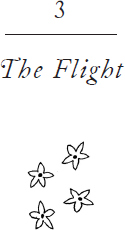
Isabelle sat up straight and glanced across to the children’s bed. Jacob was already awake, arms around his legs, chin on his knees. He had the best ears of all of them.
—One horse, he said quietly.
Isabelle nudged Etienne.
—A horse, she whispered.
Her husband jumped up, half-asleep, his hair dark with sweat. Pulling on his breeches, he reached over and shook Bertrand awake. Together they slipped down the ladder as someone began pounding on the door. Isabelle peered over the edge of the loft and watched the men gather, clutching axes and knives. Hannah appeared from the back room with a candle. After whispering through the crack in the door, Jean set down the axe and drew back the bolt.
The Duc de l’Aigle’s steward was no stranger. He appeared periodically to confer with Jean Tournier and used the house to collect tithes from the surrounding farms, carefully recording them in a calfskin-bound book. Short, fat, completely bald, he made up for his lack of height with a booming voice that Jean tried in vain now to stifle. There could be no secrets with such a voice.
—The Duc has been murdered in Paris!
Hannah gasped and dropped the candle. Isabelle unthinkingly crossed herself, then clutched her neck and looked around. All four children were now sitting up in a row, Susanne perched next to them on the edge, balancing precariously, her belly huge and distended. She’ll be ready soon, Isabelle thought, automatically assessing her. Though never used now, the old knowledge was still with her.
Petit Jean had begun whittling with the knife that he kept with him even in bed. Jacob was silent, eyes large and brown like his mother’s. Marie and Deborah leaned against each other, Deborah looking sleepy, Marie’s eyes bright.
—Maman, what is murder? she called out in a voice that rang like a copper pan being beaten.
—Hush, Isabelle whispered. She moved to the end of the bed to hear what the steward was saying. Susanne came to sit beside her and the two leaned forward, resting their arms on the railing.
— … ten days ago, at the wedding of Henri de Navarre. The gates were locked and thousands of followers of the Truth slaughtered. Coligny as well as our Duc. And it is spreading to the countryside. Everywhere they are killing honest people.
—But we are far from Paris and we are all followers of the Truth here, Jean replied. We are safe from Catholics here.
—They say a garrison is coming from Mende, the steward boomed. To take advantage of the Duc’s death. They will come for you, a syndic for the Duc. The Duchesse is fleeing to Alès and passes this way in a few hours. You should come with us, to save your family. She is not offering to take others. Just the Tourniers.
—No.
It was Hannah who replied. She had relit the candle and stood solidly in the middle of the room, back slightly humped, silver braid running down her spine.
—We do not need to leave this house, she continued. We are protected here.
—And we have crops to harvest, Jean added.
—May you change your mind. Your family – any of your family – is welcome to join the Duchesse.
Isabelle thought she caught the flash of the steward’s eyes directed toward Bertrand. Watching her husband, Susanne shifted uneasily. Isabelle reached for her hand: it was as cold as the river. She glanced at the children. The girls, too young to understand, had fallen back to sleep; Jacob was still sitting with his chin on his knees; Petit Jean had dressed and was leaning against the railing, watching the men.
The steward left to warn other families. Jean bolted the door and set the axe beside it while Etienne and Bertrand disappeared into the barn to secure it from within. Hannah moved to the hearth, set the candle on the mantel and knelt beside the fire, banked for the night under ashes. Isabelle thought at first that she was going to build it up, but the old woman did not touch the fire.
She squeezed Susanne’s hand and nodded towards the hearth.
—What is she doing?
Susanne watched her mother, wiping her cheek where a tear had strayed.
—The magic is in the hearth, she whispered finally. The magic that protects this house. Maman is praying to it.
The magic. It had been referred to obliquely over the years, but Etienne and Susanne would never explain, and she had never dared ask Jean or Hannah.
She tried once more.
—But what is it? What is there?
Susanne shook her head.
—I don’t know. Anyway, to speak of it is to ruin its power. I have already said too much.
—But why is she praying? Monsieur Marcel says there is no magic in praying.
—This is older than praying, older than Monsieur Marcel and his teachings.
—But not older than God. Not older than – the Virgin, she finished silently.
Susanne had no answer.
—If we go, she said instead, if we go with the Duchesse, we will no longer be protected.
—Protected by the Duchesse’s men, by swords, yes, Isabelle responded.
—Will you come?
Isabelle did not answer. What would it take to draw Etienne away? The steward had not looked at him when urging them to go. He knew Etienne would not leave.
Etienne and Bertrand returned from the barn, Etienne joining his parents at the table. Jean glanced up at Isabelle and Susanne.
—Go to sleep, he said. We will keep watch.
But their eyes were on Bertrand, standing uncertainly in the middle of the room. He looked up at Susanne as if searching for a sign. Isabelle leaned toward her.
—God will protect you, she whispered in Susanne’s ear. God and the Duchesse’s men.
She sat back, caught Hannah’s glare, met it. All these years you have taunted me because of my hair, she thought, yet you pray to your own magic. She and Hannah stared at each other. Hannah looked away first.
Isabelle missed Susanne’s nod but not its result. Bertrand turned resolutely towards Jean.
—Susanne, Deborah and I, we will go to Alès with the Duchesse de l’Aigle, he stated.
Jean gazed at Bertrand.
—You understand that you will lose everything if you go, he said quietly.
—We will lose everything if we stay. Susanne is near her time, she cannot walk far. She cannot run. There will be no chance for her when the Catholics come.
—You do not believe in this house? Where no babies have died? Where Tourniers have thrived for 100 years?
—I believe in the Truth, he replied. That is what I believe in. With his words he seemed to grow, his defiance giving him height and girth. Isabelle realized for the first time that he was actually taller than his father-in-law.
Конец ознакомительного фрагмента.
Текст предоставлен ООО «ЛитРес».
Прочитайте эту книгу целиком, купив полную легальную версию на ЛитРес.
Безопасно оплатить книгу можно банковской картой Visa, MasterCard, Maestro, со счета мобильного телефона, с платежного терминала, в салоне МТС или Связной, через PayPal, WebMoney, Яндекс.Деньги, QIWI Кошелек, бонусными картами или другим удобным Вам способом.


